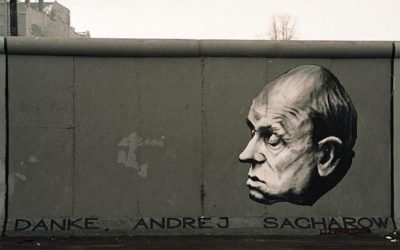The specifics of networking to promote your people and those loyal to your cause. Part 1
Katja Ivanović
“Beware of Greeks bearing gifts.”
Virgil, The Aeneid
Photo: These gifts are difficult to track and do not fall under the category of corruption, as there is no direct exchange of a reward for a particular academic status symbol. Photo by Taras Chernus on Unsplash
Today, as Russian science faces international sanctions and numerous internal restrictions, it is worth examining the features of the international race Russian universities have been running over the past 10 years.
An analysis of the hidden world of academia allows us to answer the following question: How, under the guise of declared support for shared international values, was fertile ground formed for the infringement of academic freedoms? Why are there now many members of academia who actively support and legitimize any political choice the state makes?
5-100: A Successful PR Campaign
A striking feature of Russian academia over the past two years has been the sharp dissonance between the new guidelines and the academic slogans of previous periods.
Starting in the 2000s, the Russian authorities made a concerted effort to integrate into the global academic environment. Many projects in the fields of science and education were officially based on generally accepted academic values.
One of the most notable projects in the field of education was Project 5-100 (the Russian version of the excellence program). Its stated goal was for at least 5 Russian universities to enter the top 100 universities in the world in at least one of the three leading international rankings by 2020.
As it turns out, the noble goal of increasing the competitiveness of national universities can lead to certain imbalances, creating not only real, but also false signals in the academic market.
- On the one hand, international university rankings reflect the results of competition.
- On the other hand, given that certain players are lavished with resources, there can be no talk of fair competition.
Project 5-100 became a high-profile PR campaign, on par with such mega-events as the 2014 Sochi Olympics and the 2018 FIFA World Cup. Nor was the only PR audience the domestic consumer. The international scientific community and foreign institutions were the main audience to which this success was demonstrated. To a certain extent, they acted as donors of the visible “democratization” of the country.
Positivity Despite Everything
Project 5-100 actively allocated funding to attracting applicants, “buying the prestige” of foreign scientists, advertising in the media and academic publications, and constructing mausoleums of science and Potemkin villages.
Although the project did not result in any of its participants being included in the top 100 in any target global ranking, the media, officials and top management of universities focused only on the positive. Even after February 2022, any associated negatives are attributed exclusively to the sanctions of the last two years. Counterintuitively, even those who have left the country, abandoning their leadership positions at major Russian universities, have positive views of the project.
The reasons for this may be found in the specific networking mechanisms that have existed in the Russian academic environment since Soviet times (and were often referred to as “blat”). This networking took on special forms in the implementation of state academic initiatives.
Conflict of Interest in the Race for Rank
Conflicts of interest in any area can significantly alter the design of a system and the results obtained.
Russian and foreign scientists were actively involved in the implementation of various state projects—as experts, members, and chairmen of supervisory and other boards.
- On the one hand, they performed control and advisory functions.
- On the other hand, they received certain signifiers of academic prestige, as well as financial and other personal benefits.
The final assessments given by the committees of various projects, including Project 5-100, were generally positive. Thus, a certain system of signaling was developed that in fact served as a facade for this kind of networking.
This problem concerns not only Russia, but also many countries that have taken on the task of building world-class universities in today’s academic conditions.
Sides of the Exchange
The specifics of the Russian academic market are such that universities are not interested in changing the status quo. Some universities are close-knit groups of yes-men. Their task is to legitimize the introduction of private interests of management into the business processes of the organization. However, within the framework of state funding, it is necessary to demonstrate growth in measurable indicators.
Those distributing the resources have perfectly adapted the exchange practices of the Soviet period. Under the conditions of such a system design, exchange participants are well protected from any internal competition—with the help of “pocket” personnel and other committees.
Universities cover the cost of flights, hotels, and restaurants for the chairmen of supervisory boards and members of various commissions. They, in turn, decide to extend the university’s funding.
This is the case both in universities that have actually tried to improve their performance and in organizations that were captured by rent-seekers back in the “wild 90s.” As a result, corruption has taken on frightening forms in some universities.
As a result of the race for rankings, the conflict of interests has gone far beyond the borders of a single country and has acquired an international character.
The university buys the services of ranking agencies, but under standard conditions, it would not make the top ranks—and so the ranking system changes. Additional subsections appear in the fine print, and the university gains the opportunity to boast about its achievements.
It was precisely this overt “help” from the ranking systems that made it possible to replace global rankings with their local and subject-specific surrogates in the final results of the 5-100 project.
Exchange of Academic “Favors”
A wide range of academic gifts and favors are exchanged:
- from sinecure positions to formal/figurehead management of a department
- from involvement in the charade of developing educational programs to including someone in a grant in order to legitimize the money being given to their organization
- from defending a specific degree candidate to creating an entire career trajectory for numerous friends and relatives of the university elite
The culture of gift exchange has affected all aspects of the academic world.
An Academic Degree as Leverage for Exchange
An academic degree is a significant signal in the academic market. The dark side of obtaining academic degrees has long attracted the interest of researchers—it is enough to recall the Dissernet project, a free online community of experts exposing scientific fraudsters. However, within the framework of networking, these shadow schemes have taken on a new form that has practically escaped critical analysis from the academic community.
As a result of the fact that specific networks are actively forming within academic funding programs, the purchase and sale of a degree no longer looks like such. The “deal” does not involve any monetary reward for “selling a diploma.” To a certain extent, it can be classified as “dissertation defense by connections.”
At the same time, the process of acquiring the coveted degree is clothed in the garb of interregional—and even international—cooperation. For example, the chairman of the Russian dissertation council is invited by the university to perform certain work or services. At the same time, degree-seekers close to the leadership suddenly become holders of an academic degree in their chosen field.
Everything seems to be above board and to comply with the principles of academic ethics. Behind the scenes, however, lies the question: could the same students have defended their dissertations without this indirect funding?
These “tight-knit circles” existed in the Soviet era as well. However, the active use of funds from academic projects to promote “their people” makes the system even more corrupt—and inaccessible to researchers who are not patronized by those distributing the resources.
Networking can take many forms. But the gift exchange component adds the flavor of conflicting interest to many dissertation defenses.
One example is this tour of tourist-friendly universities in Europe for a group of Russian and foreign employees, carried out with the financial support of a Russian university. Why would a Russian organization finance joint trips abroad for its specialist employees and foreign professors? The answer lies in one seemingly insignificant fact: the foreign participants in the trip are either supervisors or members of the board committee of a European university where individual representatives of this Russian university periodically successfully defend their theses.
This type of networking could also be more targeted, as when foreign supervisors are simply hired by Russian universities as international specialists. Such a scheme could in fact allow a whole range of employees from the personnel reserve to acquire a PhD at once.
In one case, the supervisor was directly subordinate to his PhD student. And this talented young member of the personnel reserve juggled management of a department in his Russian alma mater in one of the regions with studying in a prestigious master’s program in Moscow and a PhD program in Western Europe. His management work did not prevent him from defending two dissertations on completely different topics within a few days of each other: a master’s (in Moscow) and a PhD (in Spain).
These gifts are difficult to track and do not fall under the category of corruption, as there is no direct exchange of a reward for a particular academic status symbol.
However, when this same scheme of employing a supervisor at a Russian university plus defending a thesis at the same council of a European university is repeated year after year for a number of employees in the personnel reserve, a kind of “wholesale PhD networking” arises. Is it any wonder that this European university is becoming so popular with Russian applicants? And of course, this is reflected in the position of this university in the rankings. Such a gift exchange is, indeed, very mutually beneficial, even for its institutional participants. But what does society gain from such cooperation and advancement of “their own people” and those who are loyal to their cause?
Katja Ivanović is an independent researcher.





0 Comments